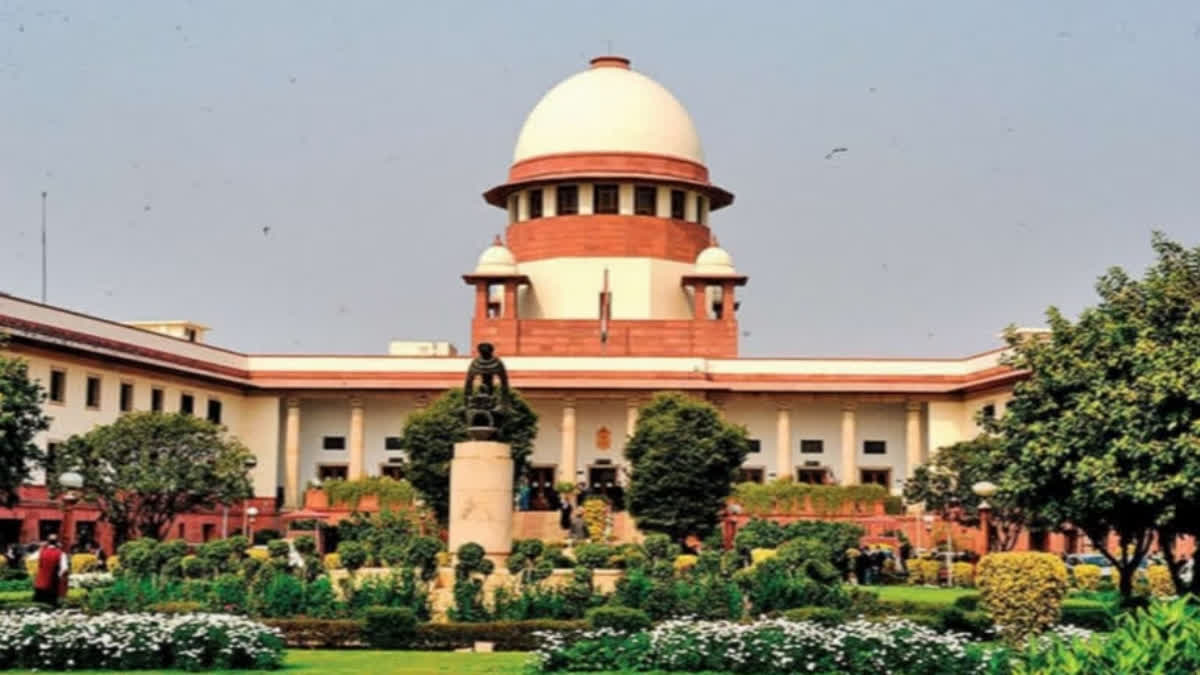New Delhi: The Supreme Court on Thursday asked Senior Advocate Kapil Sibal whether Article 370, which gave special status to Jammu and Kashmir, is being equated to the Basic Structure of the Constitution, and asked him if "we are creating a new category apart from Basic Structure and Article 370 belongs to that?”
A five-judge constitution bench headed by Chief Justice of India D Y Chandrachud and comprising justices S K Kaul, Sanjiv Khanna, B. R. Gavai, and Surya Kant, is hearing a batch of petitions challenging the Centre’s decision to abrogate Article 370.
On the second day of the hearing on Thursday, Sibal, representing Mohd. Akbar Lone, contended before the court that there was no constitutional process available to abrogate Article 370. Sibal vehemently argued that it had attained a “permanent character” after 1957, when the Jammu and Kashmir constituent assembly dissolved, without changing this Article.
The Chief Justice asked Sibal can Parliament not have amended the constitution by exercising Article 368 power to abrogate Article 370. "You're saying that there is a provision of the Constitution which lies even beyond the amending powers of the Constitution?" the CJI asked. "So we are creating a new category apart from Basic Structure and Article 370 belongs to that?" he added.
The Basic Structure comprises essential features of the Constitution which the Parliament cannot alter. Sibal said it is not a new category and stressed, the abrogation of Article 370 was purely a political act and there was nothing within the constitutional structure, which allows either the Parliament or the President to abrogate it.
The bench asked him if Article 370 is being equated with the Basic Structure of the Constitution. To it, Sibal said: "We have to find a constitutional procedure through which the process of abrogation has to be done".The Chief Justice said, “How can you say that the Parliament could not have exercised its plenary amending power to abrogate Article 370?”
Also read: Day 2 of Article 370 hearing: President's rule cannot be used for decimation of democracy, SC told
Sibal replied this was not (part of) "the Basic Structure but rather a compact between one sovereign (princely state of Jammu and Kashmir) and another (the government of India) drafted in our Constitution, and the route available to abrogate Article 370 is through the political act".
The Chief Justice asked a pointed query to Sibal, is it not possible that such a sovereign compact could be overridden by the sovereign of the succeeding state, which is the government of India? Sibal said: "We are not giving solutions to the other side that you can do it under Article 370, rather there is a limited constitutional issue before the apex court: the power and the process."
Justice Gavai asked Sibal: "Your argument is that unless the views of the entire population of the state of J&K are taken into consideration, the abrogation can't be done?" "Yes," replied Sibal. He said that the governor of Jammu and Kashmir and the government were acting in tandem to get rid of Article 370 and it was a political exercise, and the decision to abrogate Article 370 was carried through constitutional means.
Justice S K Kaul said that everything is a political process Mr Sibal, the question is if it fits in the Constitution. Sibal said the governor in November 2018, dissolved the legislative assembly without the aid and advice of the council of ministers and it was a political process, carried through constitutional means.
Sibal says Article 356, president’s rule, is for restoration of democracy and it cannot be used for decimation of the democracy, and queried what happened to the residuary power of the state to decide its own fate. The hearing in the matter will resume on August 8.



